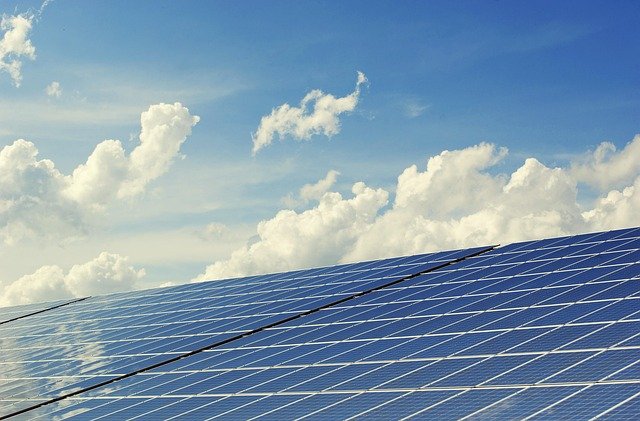Heat Pump Installation Grants in the UK: What You Need to Know in 2025
As part of the UK's push for greener living, heat pump installation grants are available in 2025 to help reduce the upfront costs of transitioning to energy-efficient heating. These grants can make a significant difference in making your home more sustainable. Learn about eligibility, the application process, and the various benefits of installing a heat pump, from reduced energy bills to a smaller carbon footprint. This investment in your home not only helps save money over time but also supports the environment by reducing reliance on fossil fuels.

The transition to low-carbon heating systems represents a significant step in the UK’s climate action plan, with heat pumps standing at the forefront of this revolution. As traditional gas boilers are gradually phased out, understanding the available financial support for heat pump installations becomes increasingly important for homeowners. The 2025 landscape offers several grant schemes designed to offset the initial costs of these energy-efficient systems, making them more financially viable for a broader segment of the population.
Overview of Heat Pump Grant Programs in the UK for 2025
The UK government has reinforced its commitment to sustainable home heating through several key initiatives. The Boiler Upgrade Scheme (BUS) continues to be the flagship program, offering substantial grants toward air source and ground source heat pump installations. For 2025, the scheme provides up to £7,500 toward air source heat pumps and £7,500 for ground source systems, representing a significant increase from previous years to reflect the government’s accelerated decarbonization targets.
Alongside the BUS, the Home Upgrade Grant (HUG) targets low-income households in properties with poor energy efficiency ratings. The Social Housing Decarbonisation Fund also continues to support registered providers of social housing in upgrading their properties with heat pump technology. Additionally, some local authorities have introduced supplementary grants to complement these national schemes, creating a patchwork of financial support across different regions.
Eligibility Criteria for Heat Pump Installation Grants
Eligibility for heat pump grants in 2025 varies depending on the specific scheme. For the Boiler Upgrade Scheme, properties must have a valid Energy Performance Certificate (EPC) issued within the last 10 years, with no outstanding recommendations for loft or cavity wall insulation. The property must be located in England or Wales, as Scotland operates its own separate schemes. Self-build properties are eligible, but new builds (other than self-builds) are generally excluded.
For the Home Upgrade Grant, eligibility is typically restricted to households with an annual income below a specified threshold and properties with an EPC rating of D, E, F, or G. Social housing providers can access the Social Housing Decarbonisation Fund if their properties meet specific energy inefficiency criteria. All schemes require installation by MCS (Microgeneration Certification Scheme) certified installers to ensure quality standards are maintained.
The application process generally begins with finding an MCS-certified installer who will assess your property’s suitability for a heat pump system. The installer then applies for the grant on your behalf, reducing the amount you pay upfront by the grant amount.
Heat Pump Grants and the UK’s Climate Goals
Heat pump grants play a pivotal role in the UK’s strategy to achieve net-zero carbon emissions by 2050. Domestic heating accounts for approximately 14% of the UK’s carbon emissions, with traditional gas boilers being significant contributors. By incentivizing the switch to heat pumps, which can be three to four times more efficient than conventional heating systems, the government aims to substantially reduce this carbon footprint.
The Climate Change Committee (CCC) has recommended the installation of 5.5 million heat pumps in homes by 2030, a target that requires a dramatic acceleration in adoption rates. The enhanced grant schemes for 2025 reflect this urgency, with the government recognizing that financial incentives are crucial to overcoming the initial cost barrier that has historically limited heat pump uptake.
Beyond direct carbon reduction, these grants contribute to the UK’s broader environmental strategy by promoting energy efficiency improvements in the existing housing stock. Many homeowners undertake additional insulation measures when installing heat pumps, further reducing energy consumption and emissions.
Steps to Access Government Incentives for Heat Pump Installation
Navigating the process of securing heat pump grants requires careful planning and attention to detail. The first step is to research which scheme best suits your circumstances – whether that’s the Boiler Upgrade Scheme for standard installations, the Home Upgrade Grant for lower-income households, or local authority schemes that may provide additional support.
Once you’ve identified the appropriate scheme, engage with multiple MCS-certified installers to obtain quotes and assessments of your property’s suitability. A good installer will conduct a heat loss calculation to determine the correct size of heat pump for your home and advise on any necessary energy efficiency improvements that should be undertaken first.
After selecting an installer, they will handle much of the grant application process, including submitting the necessary documentation to the scheme administrator. For the Boiler Upgrade Scheme, this is managed through Ofgem, which will issue a voucher confirming the grant amount. The installer will then deduct this amount from your final bill.
Be prepared for potential additional costs beyond the heat pump itself. These might include upgrading your radiators to work efficiently with lower flow temperatures, improving insulation, or installing a hot water cylinder if you currently have a combi boiler.
Cost Considerations and Financial Returns
While government grants significantly reduce the upfront cost of heat pump installations, it’s important to understand the complete financial picture. Heat pump systems vary considerably in price depending on the type, capacity, and complexity of installation.
| Heat Pump Type | Average Installation Cost (Before Grant) | Grant Available (2025) | Typical Net Cost |
|---|---|---|---|
| Air Source | £7,000-£13,000 | £7,500 | £0-£5,500 |
| Ground Source | £14,000-£30,000 | £7,500 | £6,500-£22,500 |
| Hybrid Systems | £8,000-£15,000 | Varies by component | £3,000-£10,000 |
Prices, rates, or cost estimates mentioned in this article are based on the latest available information but may change over time. Independent research is advised before making financial decisions.
Beyond the installation costs, heat pumps typically offer lower running costs compared to traditional gas or oil heating, especially when paired with a well-insulated property. The Energy Saving Trust estimates annual savings of £350-£1,250 on heating bills compared to older heating systems, though this varies significantly based on the system replaced and energy prices.
Homeowners should also consider the potential increase in property value, with research suggesting that energy-efficient homes with renewable heating systems can command premium prices in certain markets. Additionally, heat pumps typically have longer lifespans (15-20 years) than conventional boilers, potentially reducing long-term replacement costs.
Preparing Your Home for Heat Pump Installation
Maximizing the efficiency and effectiveness of a heat pump system requires careful preparation of your property. Heat pumps operate most efficiently in well-insulated homes, as they produce heat at lower temperatures than traditional boilers. Before installation, consider undertaking a comprehensive energy assessment to identify areas for improvement.
Common preparatory measures include improving loft insulation to current standards (270mm minimum), installing or upgrading cavity wall insulation, addressing drafts around windows and doors, and potentially upgrading to double or triple glazing. Some homes may also benefit from underfloor heating, which works particularly well with heat pump systems due to the larger surface area for heat distribution.
It’s also worth considering complementary technologies such as solar panels, which can generate electricity to power the heat pump, further reducing running costs and carbon emissions. Battery storage systems can enhance this benefit by storing excess solar energy for use when the heat pump needs it most.
By taking a holistic approach to your home’s energy efficiency before installing a heat pump, you can ensure the system operates at its optimal efficiency, maximizing both environmental benefits and financial returns on your investment in sustainable heating.




